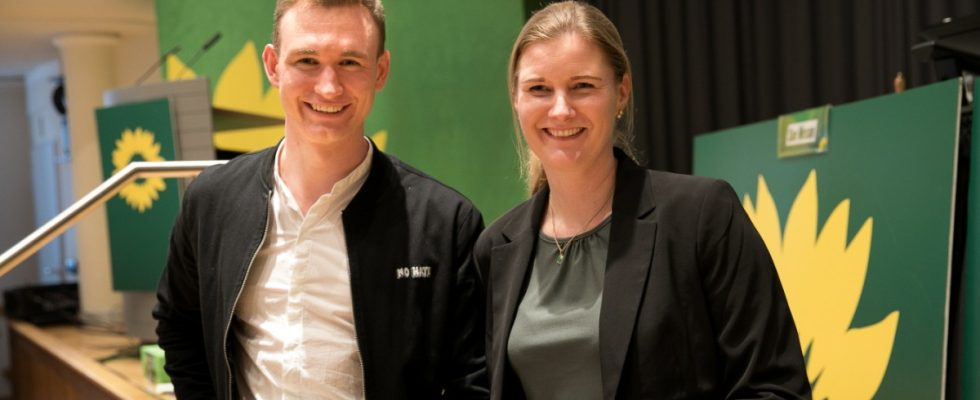The Munich Greens have a new chairman. In the future, 29-year-old Florian Siekmann and Svenja Jarchow will form the dual leadership of the party’s largest district association in Germany. The state parliament member Siekmann prevailed against the previous vice-chairman Arne Brach at a city party conference on Saturday. The 43-year-old Jarchow was confirmed in her position unopposed.
Siekmann succeeds Joel Keilhauer, who recently became a father and no longer competed in order to have time for his family. Siekmann announced in his application speech that he wanted to anchor the Greens in the “middle of society”. He explained how this could affect the south of Munich as an example. Next year, Siekmann announces that his local association will hold a political event in the beer tent at the Hadern village festival for the first time.
In this way and with other new formats, he wants to get closer to one of his main goals, namely “increasing the visibility” of the Greens in urban society. This shouldn’t just happen in the beer tent, but also on the Internet. Siekmann says he will give the Munich Greens a new social media strategy. “We must not leave the internet to right-wing extremists alone.” He wants to make politics from a single source for the Greens, “politics for the whole city.”
The majority of the 300 or so members in the packed hall of the Kolping House directly behind the Stachus were convinced by Siekmann. He received 155 of the 296 valid votes, his competitor Arne Brach received 126. He also spoke out for more visibility of green politics and for more presence on the Tiktok platform. In his application speech, he did not skimp on swipes, for example at the CSU politics in the Free State or Mayor Dieter Reiter from the coalition partner SPD. “We don’t need a mayor, we need a green mayor,” said Brach. He has “experience, competence, a thick skin and, when necessary, a big mouth.”
The Greens obviously preferred not to, they opted for state parliament member Siekmann, even if older members in particular prefer not to see a party office and a parliamentary mandate combined in one person. But the district association continues to grow, and many new Greens apparently have no problem with it. More than 4,200 members are now registered in the district association, which is why the new management duo’s tasks will include providing the right structures for this growth.
The candidate for the mayoral election seems to have been determined
In this sense, Siekmann sees his role “as a service provider in a participatory party”. But of course he also knows that his first two-year term in office will include the organization of three important elections: the European elections on June 9, 2024, the federal elections in autumn 2025 and the local elections in spring 2026. It would be a marathon for the district association, he said, and the freestyle would be the fight for the city government in Munich.
To do this, he and his co-leader Jarchow also have to organize the list of candidates for the city council and the search for the applicant for the mayoral election. The members have apparently already made a decision after the intended Katrin Haben Schaden said goodbye. When only the name of the successor as second mayor, Dominik Krause, who was ill at the party conference, was mentioned, there was loud applause in the hall.
Siekmann completed a degree in chemistry, entered the state parliament for the Hadern district for the first time in 2018 and did so again in 2023. He is the domestic policy spokesman for his parliamentary group and is involved in the queer community. His partner at the top, Svenja Jarchow, was re-elected as chairwoman for the first time. In her application speech, the mother of three children got the members in the mood for the upcoming election campaigns.
The Greens are seen by all sides as “enemy number one,” and they have to defend freedom in society, especially in the fight against right-wing extremism, she said. They will develop a strong program for the local elections, argue about the best strategy and then stand by it. Jarchow is already setting the direction: “The municipalities are the key to climate policy,” she said.

